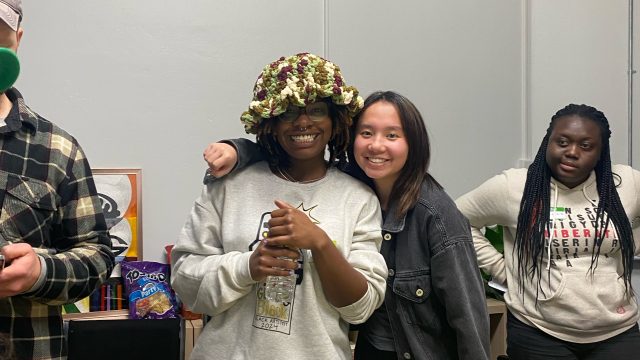By: Katie Schadler ’26
The Food, Faith, and Justice 2024 cohort spent our first full day in Baltimore meeting the Black Church Food Security Network. Although it was a rainy day, we were immediately greeted by the smiling faces of Executive Assistant Brahein and Assistant Director Linneal who were both very excited to meet us and get to work. During introductions, we learned that the Black Church Food Security Network started in 2015 following the murder of Freddie Gray at the hands of police. During this time, communities in West Baltimore not only organized in protest against this act of police brutality and injustice but witnessed the expansion of food apartheid. With grocery stores; corner stores; and school districts that provided thousands of students with consistent meals shutting down, Baltimore residents did not have access to what little food was already available. Recognizing this need, current executive director Reverend Heber Brown III and other members of the church began contacting the Black farmers they knew, using the produce from the church’s garden, and delivering food to local neighbors by bus to help fill the massive holes that a history of structural racism intentionally worked to create. This is when the Black Church Food Security Network was founded: a grassroots organization by and for the people that “does not feed the needy but helps the hungry feed themselves.”
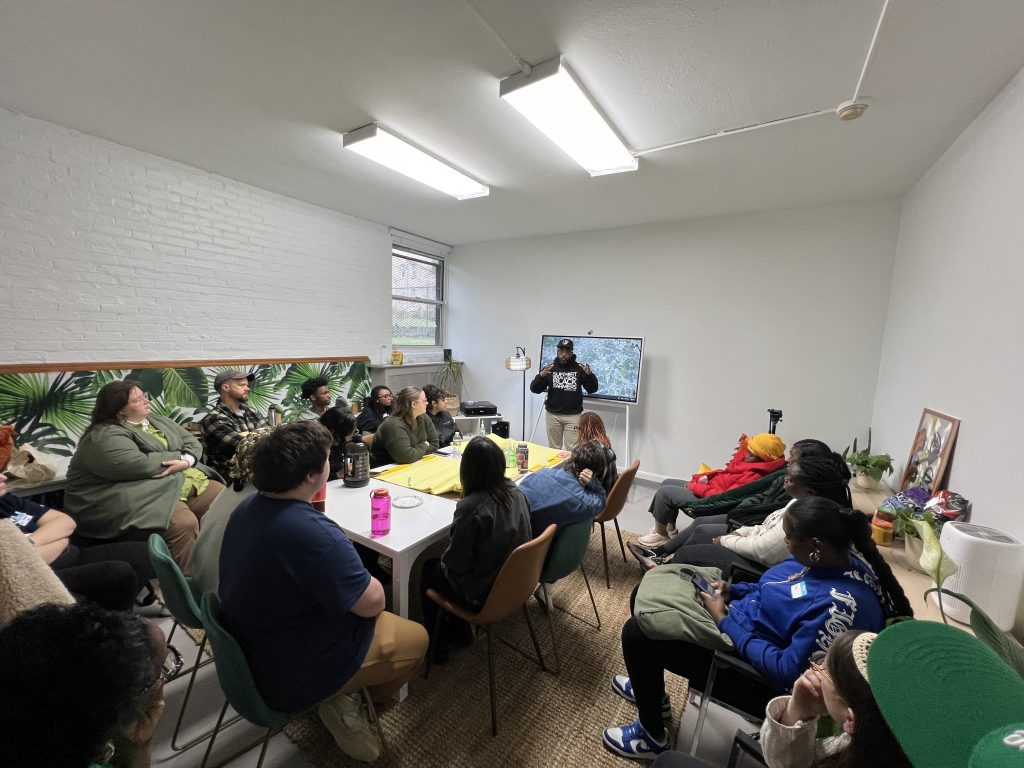
One of the questions we have been exploring throughout this semester in our Food, Faith, and Justice course is “where do we fit into all of this?” What can we be doing to help the organizations who are already doing the meaningful work? So one of the tasks we had the privilege to help with today was organizing the storage room of the Black Church–what Reverend would later endearingly refer to as “sweat equity”–so community resources could be allocated more easily and efficiently. Given their small but mighty team, a lot of the heavy work falls on them to do both the direct action work along with the administrative and community outreach responsibilities by themselves. Thus, the work we did to help lighten this load felt both meaningful and at the same time, the least we could do. And plus, the work hardly felt like work being around good music and quality people.
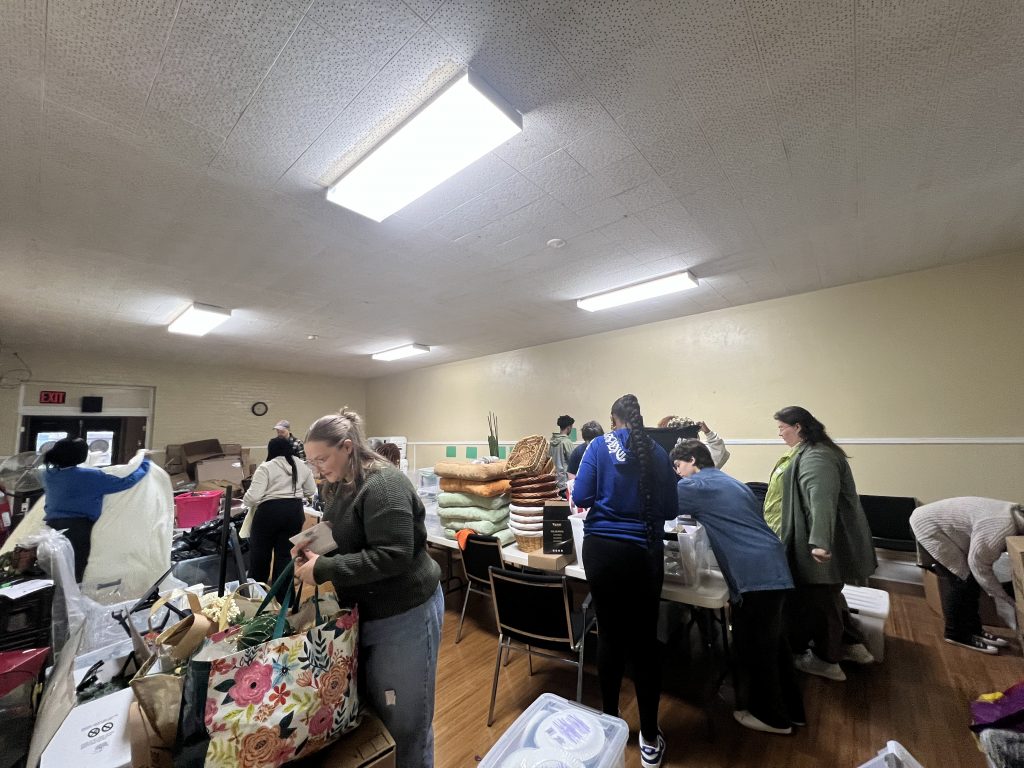
My favorite part of the day was getting to meet Reverend Brown and learning about his philosophies on community organizing. He commanded the room with so much enthusiasm and presence when he spoke that you could tell that the work he does with the Black Church comes from his soul. Reverend Brown talked about the importance of the behind-the-scenes work that is community organizing. To bring initiatives of similar work together instead of keeping ideas and resources exclusive. To enter a community not with the mindset of sticking to your own ideas about getting a project done but finding who is already doing the work and amplifying it. After an enriching Q & A about how the group can explore a balance of meeting community members where they are at in fulfilling their day-to-day realities first while also working against the broader structural issue of food apartheid, we had the opportunity to collaborate on some community outreach research to support other churches who are at the start of their own initiatives.
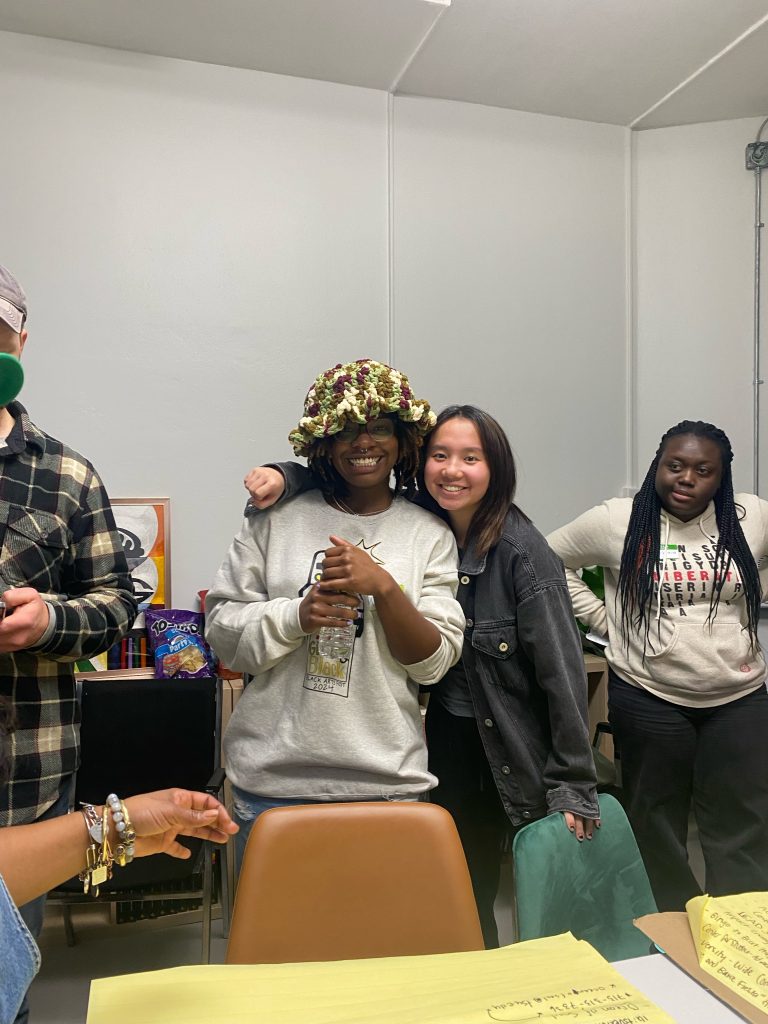
Our day concluded with a reflection facilitated by Reverend Brown over some delicious fried chicken, mac and cheese, and collard greens. The day was filled with so much learning, love, and laughter (especially over Reverend Brown’s scallions), but one thing I won’t forget was the impact Reverend Brown and the inspiring student fellows of the Black Church Food Security Network left on me: As we continue to meet dedicated, passionate Baltimore leaders and organizers on this trip, it is important that we consider how the work of ending food apartheid continues once we’re back on the Bucknell campus and beyond. Being such an academically rigorous institution rooted in hustle culture, it becomes almost routine to get caught up in the learning that strictly happens in the classroom. One of the two most significant pieces of advice Reverend Brown left us with was to not think about college in terms of your academic major but your mission. If you ask yourself what you want your mission to be and try to align the rest of your life to that mission, you will not live your life doing what you think you are supposed to do or subscribed to do but what you believe to be absolutely necessary.
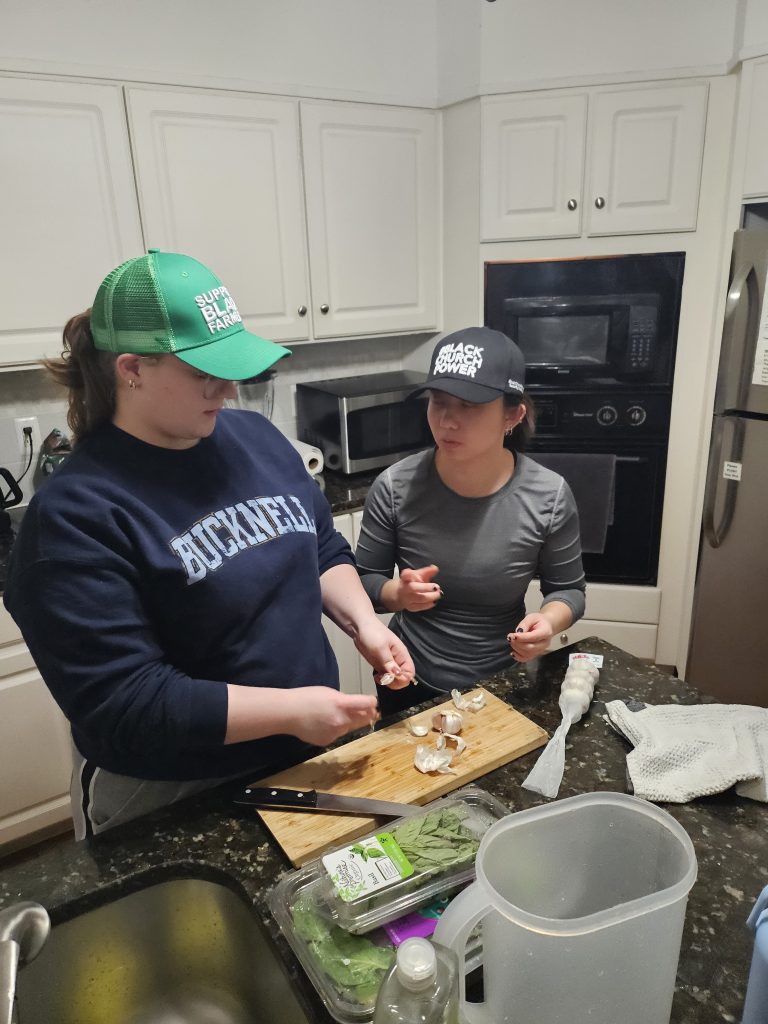
The second piece of advice, and probably the most applicable advice for a group of students looking to push this movement forward, is to avoid starting with the problem. While this might seem counterintuitive given that most community-organizing classes suggest that we first ask what the problem is and how we can help, Reverend Brown invites us to begin not by asking a community “what’s wrong?” but by asking “what’s strong?” In exploring where the skill sets of a community already lie, the initiative is more likely to be empowered when led by a cohort of people who believe the strength and thus the solution lies with them. It is only day one out of a week-long trip and life-long journey, and I have already learned so much. So far, it has been a privilege to learn about and participate in meaningful work with some of my best friends, and it filled me today watching a room full of dedicated, beautifully distinct changemakers recognize the strength that too lies within all of us.
